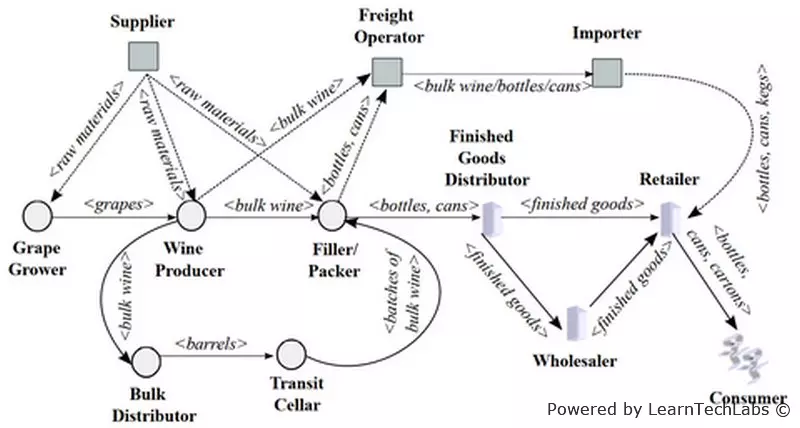The German aeronautics and aerospace sector is a technological and economic engine of the country. It brings together almost all the high technologies of the computer age: electronics, robotics, measurement, control and regulation technology and materials technology. Industry spending on research and development accounts for 11% of total industry revenue, which is a very high level.
The resulting innovations have greatly stimulated the construction of computers and also have applications in many other branches of industry. Mobile radio systems, navigation systems for motor vehicles, live broadcasts of major sporting and political events, videoconferences with participants from distant countries or global research on the environment and climate would not be possible without the performances pioneers in this sector. Aeronautics unites the continents, but was also the first transport sector to commit to sustainability at the beginning of this millennium and to define concrete objectives for climate protection (ACARE 2020). Aerospace provides new information about the Earth and the universe, opens up new technical applications, enables new services, encourages international cooperation and improves the possibilities of peace and disarmament policy beyond Europe. Although it represents a relatively small industrial sector, the German aeronautics and aerospace industry is thus of great strategic importance. This is valid for all areas of this sector of the future.
Aeronautics
Like many other industrial branches, aeronautics is experiencing increasingly short innovation cycles and increasing requirements in terms of profitability and environmental compatibility of products. In order to sustainably promote the technological competitiveness of the German aeronautical industry, the BMWK, under these conditions, supports this sector with an autonomous aeronautical research program and the program for aeronautical suppliers.
One of the objectives of the federal government is to strengthen the equipment and subcontracting industry in order to contribute to international success and to an aeronautical system that respects the environment, is safe, efficient and welcoming.
Civil Aviation
Airbus is and remains an important impulse generator for the European, and therefore also German, aviation industry. Thanks to the close collaboration between industry and politics and together with its European partners, this European aircraft manufacturer has established itself on a long-term equal footing with Boeing. In recent years, Airbus has been able to achieve excellent results in terms of orders and deliveries, the order book provides 7-8 years of work.
Developing the sector of equipment manufacturers and subcontractors is the declared goal of the German government, which wishes to contribute to the international success of the company and to make civil aviation an environment-friendly, safe and efficient tool for the service air travellers.
Aerospace
Unlike the highly commercial aeronautics sector, international aerospace largely depends on national strategies and available budgetary resources. The policy of the federal government and its contribution to European structures are therefore of crucial importance for the German aerospace industry. In its High Tech 2020 Strategy, the federal government has paid particular attention to aerospace, which is an essential key technology in this context. Indeed, aerospace technologies are important instruments for the modern industrial and information society.
What does the BMWK do for aeronautics and aerospace?
The BMWK is responsible for aeronautics and aerospace research to the federal government and is committed to a coherent interdepartmental policy in the field of aeronautics and aerospace. As Federal Government Coordinator for Aeronautics and Aerospace, Parliamentary State Secretary Brigitte Zypries is responsible for the interests and prospects of this strategic sector.
Promotion of research: the federal government's aeronautical research program
Tradition of promotion: Since 1995, the federal government has encouraged research and technological development in the aeronautics and aerospace sector through the Aeronautics Research Program (LuFo). The 5th version of this program is mainly focused on strengthening the sector as the first market of Industry 4.0 and on the development of new digital products.
Facilitating financing: the program for aeronautical equipment manufacturers
In order to strengthen the aeronautical equipment industry and to sustain its role as a technological pioneer, the BMWK grants partial support for development projects in the form of loans. This solution limits development risks and increases financial security. Further information.
Strengthening of international cooperation and interconnection
Innovation is not a one-way process. Aeronautical and aerospace technologies are also used in other sectors. Through offers such as the “Future Lab: Technology Transfer in Aeronautics” or the Start-Up Night in the Aerospace Industry, the BMWK supports technological networking across sector borders. The aim is to create synergies and improve innovation potential.
The BMWK participates in the development of the international framework for research, development and exports in the aeronautics and aerospace sector and cooperates, to this end, within national, European and international bodies. It also supports the interests of the German aviation industry in European research framework programs such as, for example, Clean Sky, SESAR, Horizon 2020.
Promotion of research at the German Aerospace Center
The areas of aeronautics and aerospace research of the German Aerospace Center receive institutional support amounting to more than around 200 million euros per year.
Aid to Germany's aerospace activities
Through its affiliation with the European Space Agency (ESA), the BMWK supports the national program for space and innovation and makes available, for this purpose, aid of an annual amount of approximately one billion euros.
Close-up of the business sector
The development of aeronautics and aerospace in Germany.The German aeronautics and aerospace industry developed very well in the past financial year 2018 and was able to continue to grow as in previous years.
Taken as a whole, the German aviation and aerospace industry sector was again able to achieve a high total turnover of 40 billion euros in 2018 as in the previous year. The total number of employees reached a record high, rising from 109,500 people directly employed in the aeronautics and aerospace sector in 2017 to 111,500 in 2018.
Civil aviation is again the main branch of this sector. The overall increase in orders and deliveries has led to an increase in production and productivity. The turnover amounted to 29.2 billion euros in 2018 as in 2017 and thus corresponds to 73% of the total turnover of this industry. Nearly 78,500 people were employed in this industry in 2018, which is nearly 2,000 more people than in 2017.
In military aviation, the turnover and the number of employees in 2018 is comparable to that of 2017. The turnover amounts to approximately 7.7 billion euros in 2018 against 7.8 billion in 2017. In 2018, 23,700 people were employed in this sector compared to 24,000 in 2017.
In the aerospace sector too, the turnover and the number of employees correspond to the data for the financial year 2017. The turnover amounts to 2.9 billion euros in 2018 against 3 billion euros in 2017. The number of employees increases slightly by 300 people to reach 9,300 employees in 2018.
Industry spending on sector-wide research and development remains at a very high level. They represent a volume of 4 billion euros in 2018, or 10% of the sector's turnover.
In 2018, exports amounted to 76% of the sector's total turnover.
Growth and employment prospects in the sector are favourable, especially in the medium to long term, and reliable aid instruments provide planning certainty. The growing need for mobility around the world and the replacement of old aircraft with a new generation of less noisy and more fuel-efficient aircraft is a major driver of growth. However, risks that are difficult to estimate such as global trade disputes and Brexit could hamper the development of this industry.
The German subcontracting industry dominated by small and medium-sized enterprises participates in civil aircraft programs. Due to its technological performance, the subcontracting industry dominated by small and medium-sized enterprises continues to obtain program participations from non-European aircraft manufacturers as well.
More information about the aviation and aerospace industry can be found in the industry spotlight
The German Aerospace Center.German Aerospace Center (Deutsches Zentrum für Luft- und Raumfahrt, DLR) is the German research center for aeronautics and aerospace. Its research and development work, carried out in the fields of aeronautics and aerospace, but also energy, transport and security, is integrated into national and international cooperation projects.
With more than 8,000 employees, the German Aerospace Center (( Deutsches Zentrum für Luft- und Raumfahrt e.V., DLR ) explores the earth and the solar system and provides useful knowledge for the preservation of the environment. Its activities range from research fundamental to the development of products of the future. The Center operates large research facilities for its own projects and as a service provider for business partners. In addition, it promotes young scientists, advises politicians and acts as a engine for the host regions of its 20 sites.
On 24 July 2017, the Federal Ministry for Economic Affairs and Climate Protection (BMWK) and DLR presented Strategy 2030. This aims to strengthen DLR's core competences and to make even more targeted use of potential for internal synergies in order to further develop the leading position in the research sector for the benefit of society and the economy. The strategic research objectives, the ten new cross-cutting projects and the new cross-cutting area of digitization reflect this ambition.
Over the next few years, seven more DLR institutes will be set up in six federal states. For this purpose, the Federal State releases 42 million euros per year. The key points are the digitization of research in the aeronautical industry, interconnected energy systems, the protection of important maritime infrastructures as well as big data and smart data in the aerospace industry.
The DLR participates in the implementation of German aerospace policy in two ways: on the one hand, the aerospace management team of the Center, which acts for the federal government, is responsible for the planning and implementation of activities Germany's aerospace industry at national and European level. On the other hand, the activities of the Center as a research institution and member of the Helmholtz community range from fundamental research to the development of applications and innovative products of the future, including in the field of aeronautics and of aerospace.


